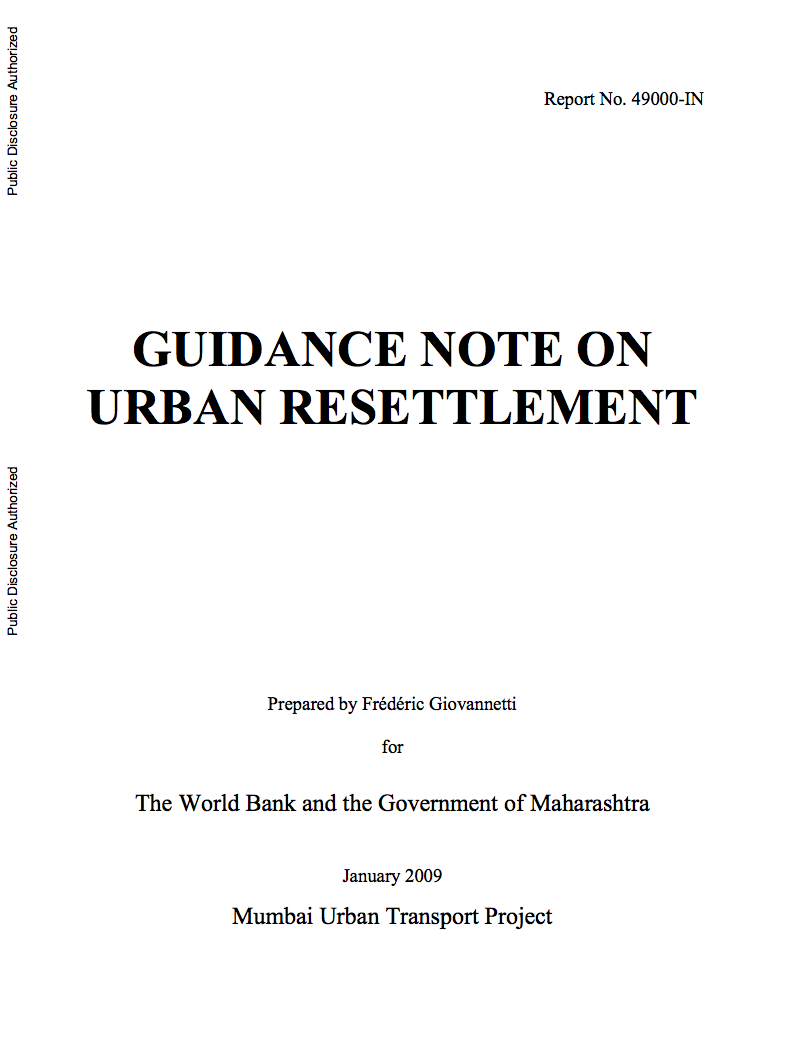The World Bank is a vital source of financial and technical assistance to developing countries around the world. We are not a bank in the ordinary sense but a unique partnership to reduce poverty and support development. The World Bank Group has two ambitious goals: End extreme poverty within a generation and boost shared prosperity.
- To end extreme poverty, the Bank's goal is to decrease the percentage of people living on less than $1.25 a day to no more than 3% by 2030.
- To promote shared prosperity, the goal is to promote income growth of the bottom 40% of the population in each country.
The World Bank Group comprises five institutions managed by their member countries.
The World Bank Group and Land: Working to protect the rights of existing land users and to help secure benefits for smallholder farmers
The World Bank (IBRD and IDA) interacts primarily with governments to increase agricultural productivity, strengthen land tenure policies and improve land governance. More than 90% of the World Bank’s agriculture portfolio focuses on the productivity and access to markets by small holder farmers. Ten percent of our projects focus on the governance of land tenure.
Similarly, investments by the International Finance Corporation (IFC), the World Bank Group’s private sector arm, including those in larger scale enterprises, overwhelmingly support smallholder farmers through improved access to finance, inputs and markets, and as direct suppliers. IFC invests in environmentally and socially sustainable private enterprises in all parts of the value chain (inputs such as irrigation and fertilizers, primary production, processing, transport and storage, traders, and risk management facilities including weather/crop insurance, warehouse financing, etc
For more information, visit the World Bank Group and land and food security (https://www.worldbank.org/en/topic/agriculture/brief/land-and-food-security1
Resources
Displaying 4176 - 4180 of 4907India - Mumbai Urban Transport Project : Guidance Note on Urban Resettlement
The purpose of this guidance note is to
bridge precisely identify how to implement World Bank
resettlement policies in the context of infrastructure
projects affecting South Asian largest cities, with a focus
on the impacts on poor areas and slums. The guidance note is
intended as a tool to help decision makers in Government
agencies and in the Bank, particularly in respect of the
main aspects: 1) methods to assess and evaluate resettlement
Climate Change Impact and Adaptation Study for Bangkok Metropolitan Region : Final Report
This report is the primary output from
the climate change impact and adaptation study for the
Bangkok Metropolitan Region (BMR) produced for the Bangkok
Metropolitan Administration (BMA) with financial support
provided by the World Bank. The report concerns climate
change, and provides an analysis of climate change impacts
and adaptation options for the BMR. In addition to the more
general matters on the physical setting and socioeconomics
Risks, Ex-ante Actions and Public Assistance : Impacts of Natural Disasters on Child Schooling in Bangladesh, Ethiopia and Malawi
This paper examines the impacts of
natural disasters on schooling investments with special
focus on the roles of ex-ante actions and ex-post responses
using panel data from Bangladesh, Ethiopia, and Malawi. The
importance of ex-ante actions depends on disaster risks and
the likelihood of public assistance, which potentially
creates substitution between the two actions. The findings
show that higher future probabilities of disasters increase
Barriers to Competition in Croatia : The Role of Government Regulation
This paper examines product market
policies in Croatia by benchmarking them to OECD countries
and highlighting how policies that are more conducive to
competition would stimulate a more efficient allocation of
resources and, in consequence, facilitate convergence to
higher income levels. OECD indicators of overall regulation
in product markets indicate that Croatias policies in 2007
were generally more restrictive of competition than were the
Assessment of the Environmental Regulatory Framework of the Mining Sector
In Nigeria, up to now mining activities
have systematically escaped environmental control. In 1989,
the Government of Nigeria issue the document "national
policy on the environment", which was revised in 1999
in response to the advances in knowledge and the need of
integrating development issues concerning all sectors of the
economy. The new environmental policy goals followed the
sustained development principles of conserving and using







